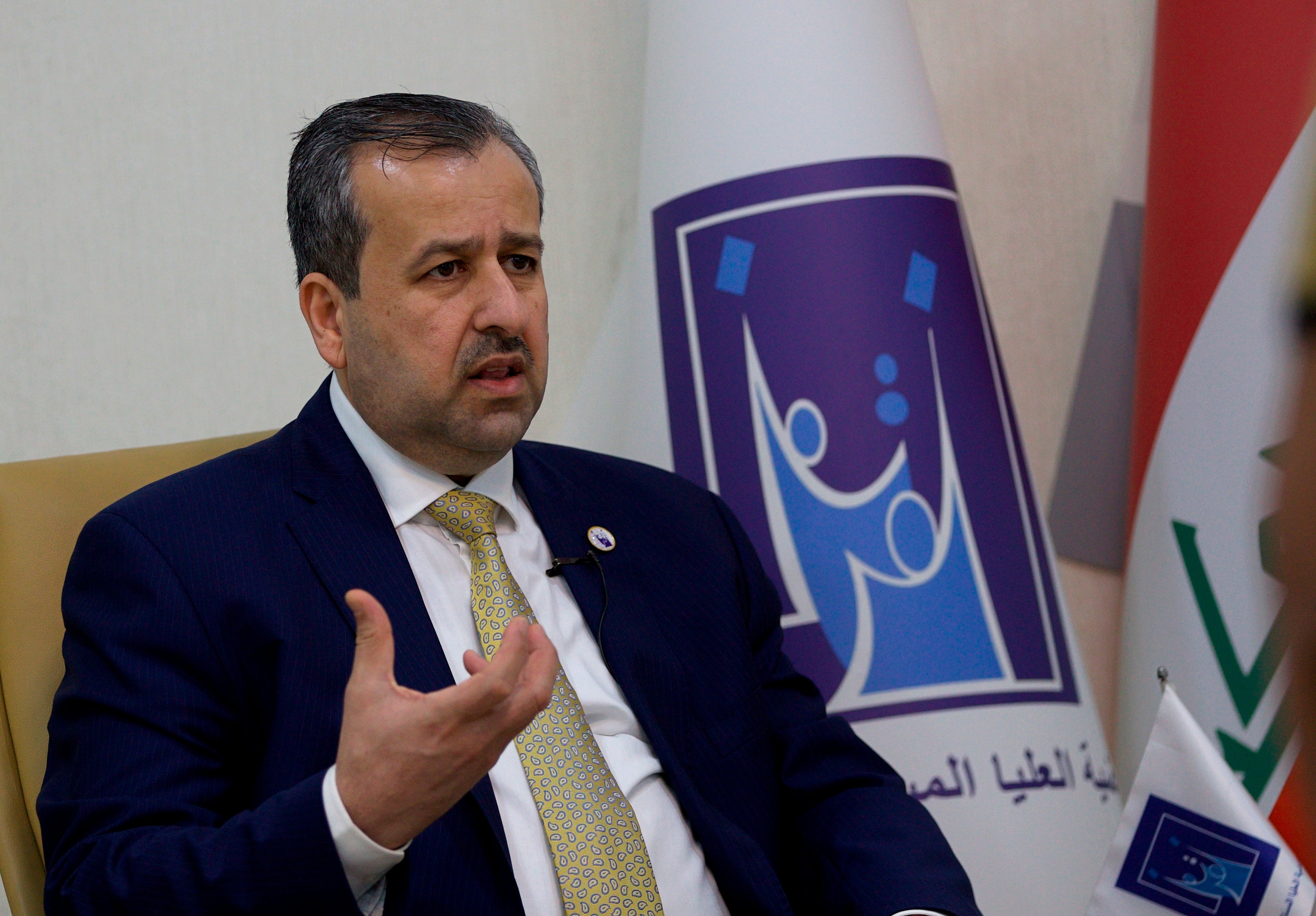Iraq election chief vows fair elections despite concerns
The head of Iraq's electoral commission says attempts to buy votes have been thwarted one month before Iraq is set to hold federal elections

Your support helps us to tell the story
From reproductive rights to climate change to Big Tech, The Independent is on the ground when the story is developing. Whether it's investigating the financials of Elon Musk's pro-Trump PAC or producing our latest documentary, 'The A Word', which shines a light on the American women fighting for reproductive rights, we know how important it is to parse out the facts from the messaging.
At such a critical moment in US history, we need reporters on the ground. Your donation allows us to keep sending journalists to speak to both sides of the story.
The Independent is trusted by Americans across the entire political spectrum. And unlike many other quality news outlets, we choose not to lock Americans out of our reporting and analysis with paywalls. We believe quality journalism should be available to everyone, paid for by those who can afford it.
Your support makes all the difference.Iraq is taking measures to close loopholes and conduct fair elections despite attempts to compromise the upcoming polls, the head of Iraq’s electoral commission said.
Judge Jaleel Adnan Khalaf, chairman of the Iraqi Independent High Electoral Commission overseeing the election on Oct. 10, told The Associated Press in an interview this week that it has identified and thwarted attempts of voter fraud.
“What we hear here and there is that citizens are selling their voter cards,” he said, referring to a way for candidates to essentially buy votes. “The commission has set strict regulations and strict rules.”
Next month’s vote is being held a year before the elections were due, in line with a promise made by Prime Minister Mustafa al-Kadhimi when he assumed office in 2020. He is seeking to appease anti-government protesters who rose up in October 2019 in Baghdad and Iraq's south.
Tens of thousands of Iraqi youth took to the streets to decry rampant corruption, poor services and unemployment. Hundreds died as security forces used live ammunition and tear gas to disperse crowds. The protests dwindled following restrictive measures to contain the spread of the coronavirus pandemic.
The elections are also being held under a new reformed electoral law that divides Iraq into 83 constituencies, instead of 18, which theoretically allows more independents to participate.
Khalaf said the commission has been receiving complaints as Election Day nears, including incidents of parties using weapons to intimidate voters in addition to the selling of voter cards.
The legitimacy and transparency of the election has been questioned with incidents of violence against activists and independent candidates on the rise, including a string of targeted killings in the months leading to the polls. The death of Karbala-based activist Ehab al-Wazni inspired many to declare a boycott of the election.
Despite Khalaf’s reassurances, Iraqis remain highly disillusioned and many are not convinced the political establishment can produce a fair vote.
Concerns are also mounting internally within the commission. One official said they were aware that members of the Popular Mobilization Forces, a state-sanctioned militia umbrella group, will vote along with the general public on Oct. 10 and not on Oct. 8, the day designated for members of the armed forces. The militia group has not provided information to the commission about their fighters, the official said, speaking on condition of anonymity because he was not authorized to discuss the matter publicly.
The United Nations expanded its electoral assistance to the commission to help promote electoral integrity in the eyes of the public. The 2018 election was marked by severe voter apathy, with only 44% of registered voters participating. There will also be 130 international experts monitoring the poll, along with 600 support staff.
There are 24 million registered voters, Khalaf said, with 3,449 candidates running in the election for 329 parliament seats. Khalaf said the commission will fulfil its legal obligation to announce the results of the election within 24 hours of polls closing.
The introduction of biometric voting cards is one way the commission hopes it can clamp down on voter fraud. Electronic verification devices will also be used to identify voters and evade double voting, which has occurred in past elections.
Khalaf said 17 million Iraqis have been issued biometric cards, but 5 million will still use the old electronic voter cards, which only contain biographic data.
Measures are also being taken to avoid the mistakes of the 2018 election, the results of which were widely disputed. A German firm, Hensoldt, was also tasked with auditing the machines and software that will be used to count and compile votes. An audit of the machines was never conducted in the last election.